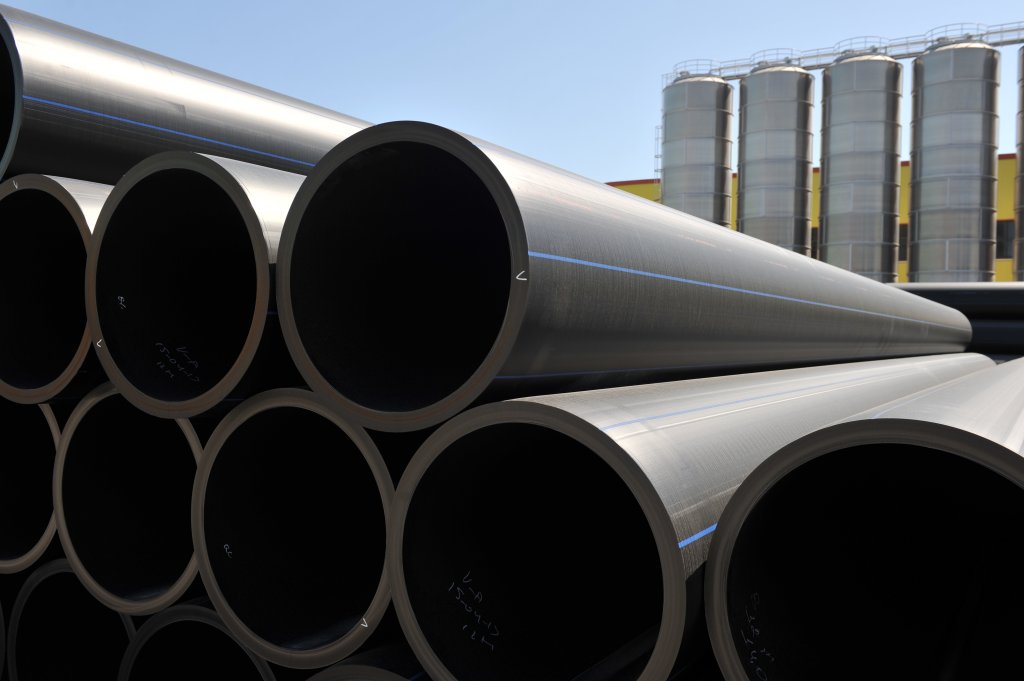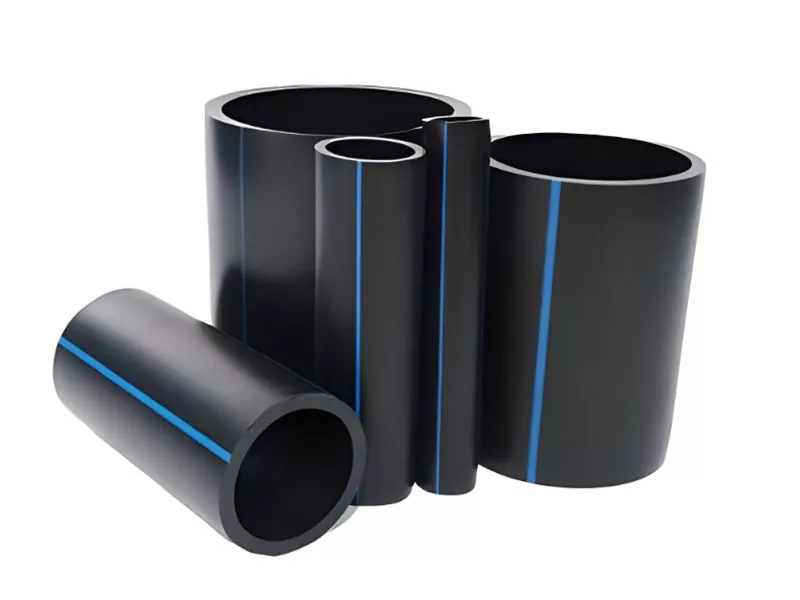Practical Overview to hdpe pipe fittings Midland TX and Their Uses
Wiki Article
Understanding the Secret Perks of HDPE Pipe for Water and Wastewater Administration
The usage of HDPE pipe in water and wastewater administration provides various advantages that merit consideration. Its remarkable sturdiness and lengthy lifespan make it a favored option for numerous jobs. In addition, the material's resistance to rust and chemical damages improves its dependability in numerous environments. The benefits extend past simply longevity and resistance. American Plastics HDPE Pipe Manufacturing. Discovering its cost-effectiveness and ecological effect discloses a lot more engaging factors for its prevalent fostering in modern-day facilitiesExceptional Sturdiness and Durability

HDPE pipe sticks out for its phenomenal sturdiness and longevity, making it a preferred option in water monitoring systems. Constructed from high-density polyethylene, these pipelines can stand up to substantial pressure and stress and anxiety, ensuring reliable efficiency over time. Their robust nature permits them to endure severe environmental problems, including temperature level changes and soil motions, which can trigger other products to stop working.
The lifespan of HDPE pipelines usually goes beyond half a century, providing a cost-efficient service for towns and sectors alike. Furthermore, the product's lightweight residential properties streamline installation, minimizing labor costs and durations. This toughness decreases the demand for frequent fixings or substitutes, additionally boosting its economic appeal.
In water administration applications, the integrity of HDPE pipes suggests fewer disturbances and enhanced service connection, making them integral to sustainable infrastructure development. The mix of resilience and longevity solidifies HDPE's duty as a foundation in effective water monitoring remedies.

Resistance to Rust and Chemical Damage
While many products catch deterioration and chemical damage over time, HDPE pipes exhibit remarkable resistance, making them ideal for various water monitoring applications. This resilience comes from the molecular framework of high-density polyethylene, which is inherently non-reactive and does not corrode like steels or degrade from direct exposure to extreme chemicals. As an outcome, HDPE is highly efficient in atmospheres with hostile materials, such as wastewater systems that may have acids, bases, and natural solvents.
In addition, HDPE pipes can hold up against ecological aspects such as dirt level of acidity and saline problems, even more enhancing their suitability for varied applications (Pipe Supplier American Plastics Midland). Their capacity to maintain architectural integrity gradually reduces the danger of leaks and failings, which is critical in ensuring the safety and reliability of water circulation and wastewater management systems. Subsequently, the resistance to deterioration and chemical damages significantly contributes to the overall performance and durability of HDPE piping options
Cost-Effectiveness and Financial Advantages
When taking into consideration the economic implications of water monitoring systems, the cost-effectiveness of HDPE pipelines ends up being obvious. These pipelines offer lower setup and upkeep expenses compared to standard products like steel or concrete. Their lightweight nature streamlines transportation and setup, leading to reduced labor expenses. Furthermore, HDPE pipes show a lengthy lifespan, typically surpassing half a century, which converts to less replacements and long-lasting savings.Additionally, the resistance of HDPE to rust and chemical damages minimizes the requirement for costly fixings and substitutes. The pipes also sustain effective water circulation, lowering power costs related to pumping systems. By reducing leakages and water loss, HDPE pipes contribute to significant financial advantages for districts and sectors alike. Generally, the first investment in HDPE piping can yield substantial monetary returns over the life expectancy of the water management system, making it a sensible selection for lasting facilities advancement.
Ecological Sustainability and Reduced Impact

Versatility and Adaptability in Setup
Due to the fact that of their one-of-a-kind homes, HDPE pipes offer remarkable flexibility and flexibility in installment, making them ideal for a large range of applications. Their light-weight nature permits easier handling and transport, minimizing labor prices and setup time. HDPE pipes can be bent and formed to fit numerous surfaces and project needs, which is especially beneficial in testing environments.In addition, their resistance to corrosion and chemical damage enables for installation in varied setups without the requirement for specialized safety coatings. The capability to fuse joints produces a constant, leak-free system, enhancing the general honesty and integrity of the setup. HDPE's adaptability likewise suits ground activity, minimizing the threat of damage in areas prone to moving soil. Generally, these qualities make HDPE pipelines not just flexible but likewise a recommended choice for water and wastewater management systems.
Often Asked Concerns
Just How Does HDPE Pipeline Contrast to PVC in Water Administration Applications?
HDPE pipe provides exceptional versatility, resistance to rust, and longevity compared to PVC. Its lighter weight assists in simpler installment, while its long life-span lowers replacement costs, making HDPE a preferred option in water monitoring applications.What Is the Lifespan of HDPE Piping Under Typical Problems?
Under common conditions, HDPE pipes can have a life-span ranging from 50 to 100 years. Their sturdiness and resistance to deterioration add to their long-lasting efficiency in different applications, making them a dependable choice for framework.Are HDPE Piping Recyclable After Their Life Span?
Yes, HDPE pipes are recyclable after their life span. Pipe Manufacturing Midland TX. They can be processed and repurposed into new items, considerably lowering environmental effect and promoting sustainability within the market, making them an environment-friendly choice for piping servicesWhat Is the Setup Process for HDPE Piping?
The setup process for HDPE pipes involves site prep work, trenching, pipe combination or mechanical joining, backfilling, and pressure screening. Correct methods guarantee a resilient and efficient system for moving water and wastewater efficiently.Can HDPE Pipeline Be Used for Both Potable and Non-Potable Water Systems?
Yes, HDPE pipelines can be used for both potable get more info and non-potable water systems. Their versatility, durability, and resistance to corrosion make them suitable for numerous applications, guaranteeing secure and reliable transport of water in various contexts.Report this wiki page